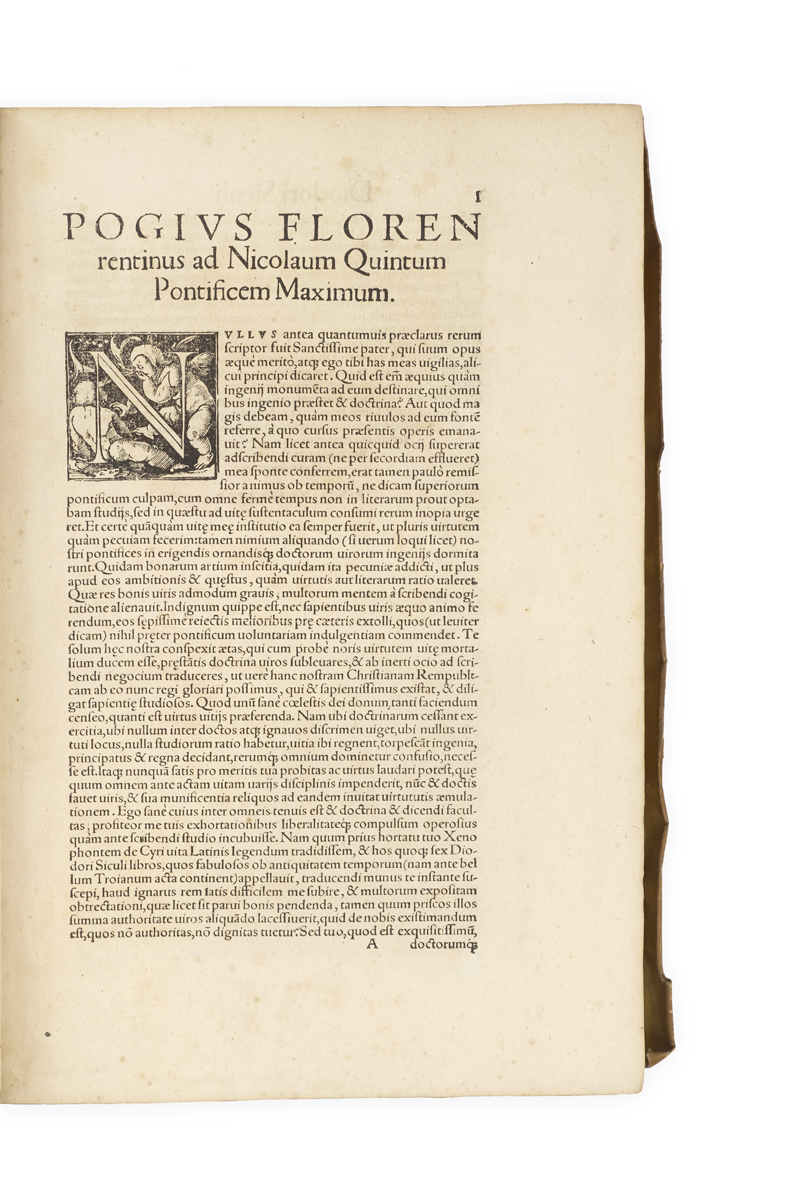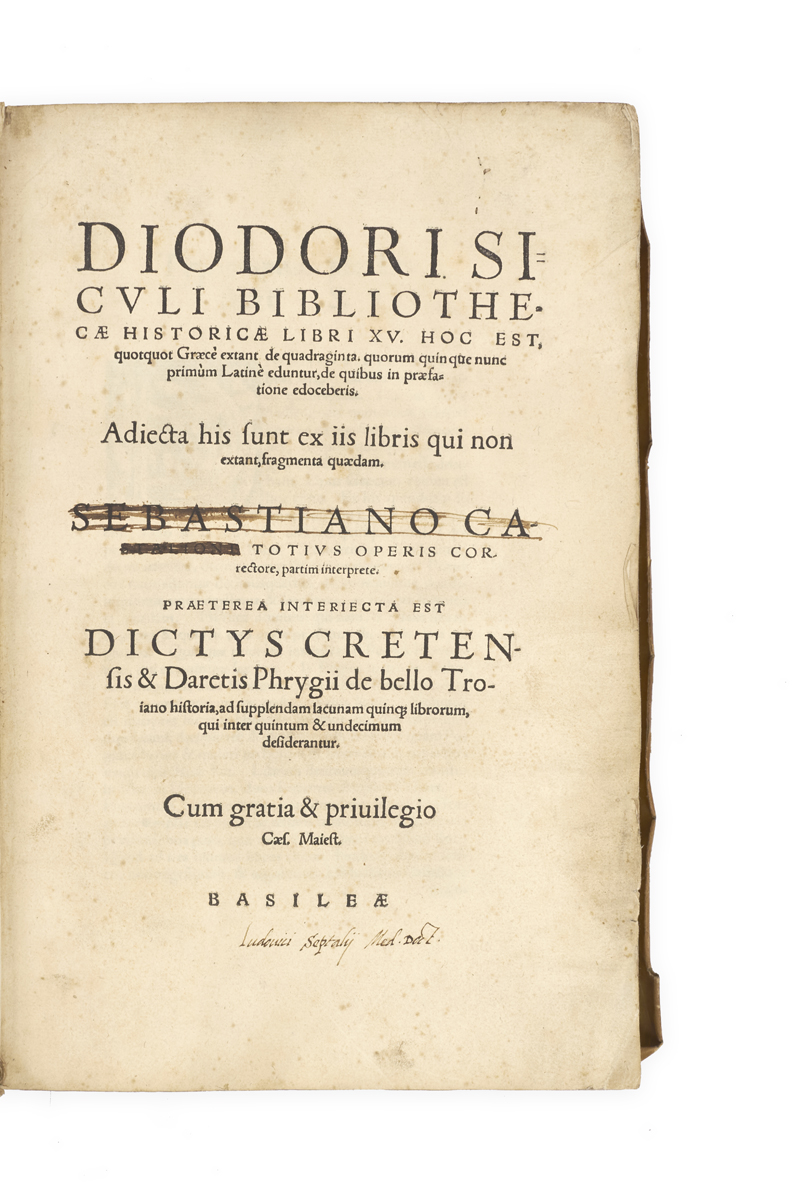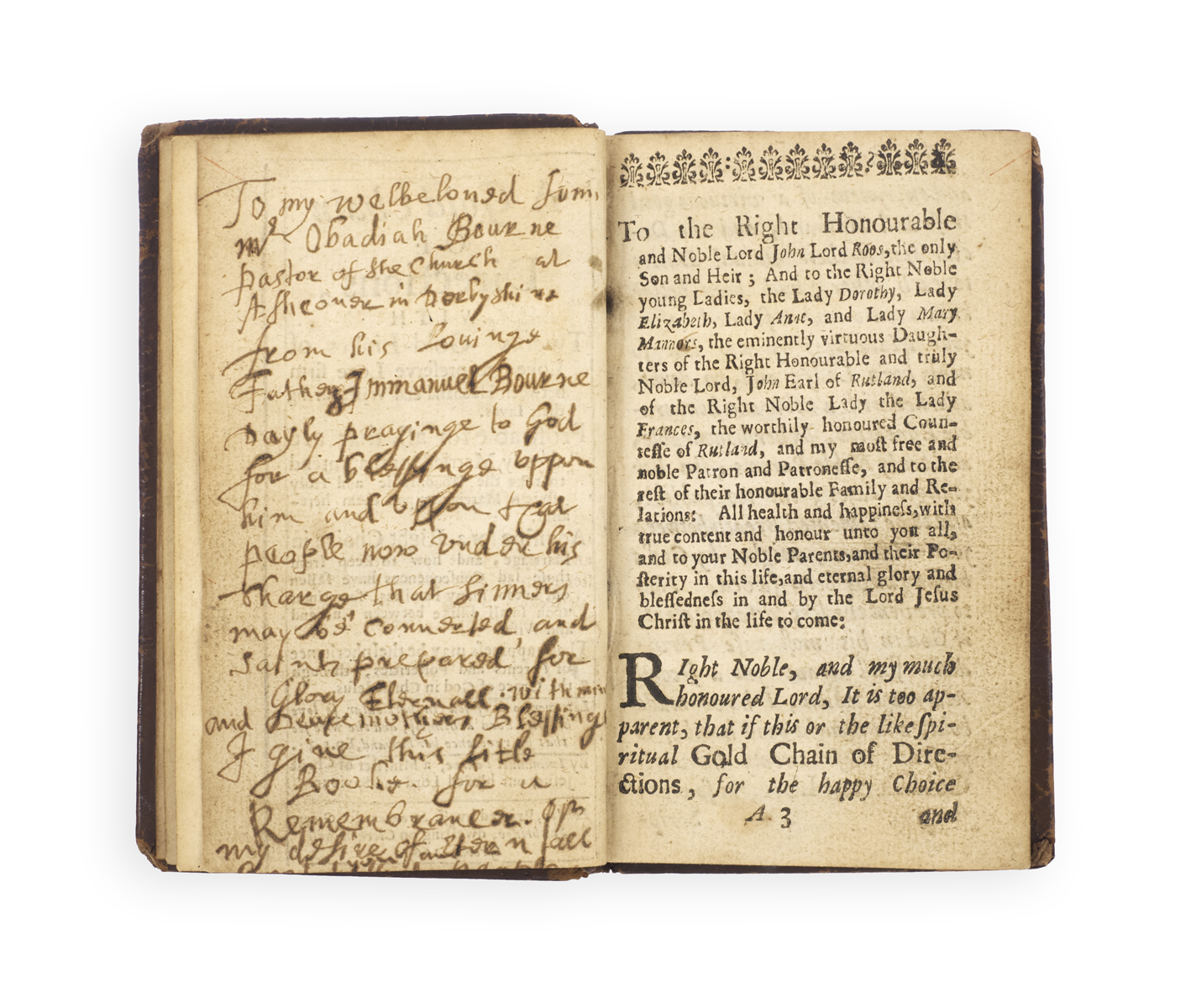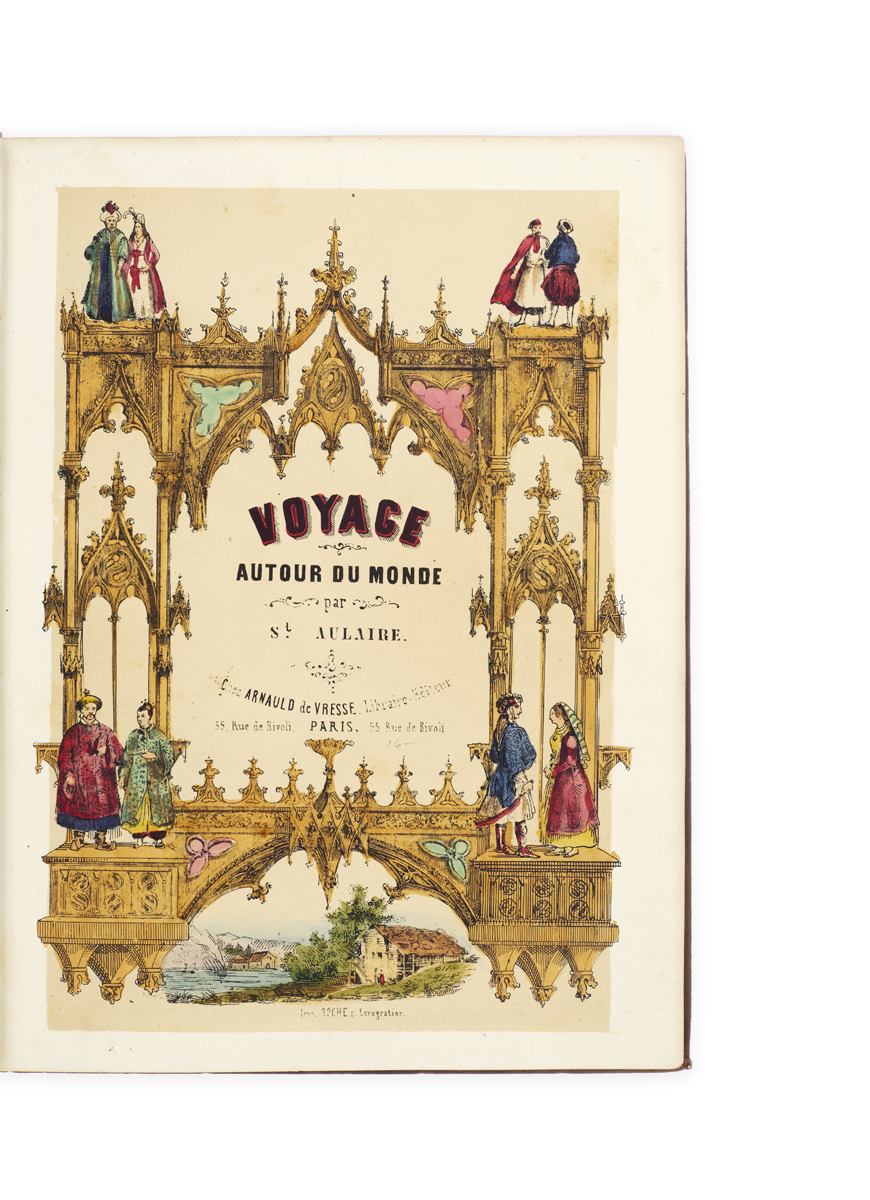

FROM THE LIBRARY OF A CELEBRATED PHYSICIAN
DIODORUS Siculus.
Bibliothecae historicae libri XV. Hoc est, quotquot Graece extant de quadraginta quorum quinque nunc primum Latine eduntur … Adiecta his sunt … fragmenta quaedam, Sebastiano Castalioni totius operis correctore, partim interprete. Praeterea interiecta est Dictys Cretensis & Daretis Phrygii de Bello Troiano historia.
Basel, Heinrich Petri, August 1559.
Folio, pp. [xxxvi], 715, [1]; woodcut Petri device to final page, large historiated woodcut initials; light uniform toning, but a very good copy; in contemporary vellum, yapp fore-edges, vestigial ties, ink titling to spine and top-edge, sewn on 3 leather thongs, spine lined with vellum manuscript waste; vellum a little soiled, a few inconsequential repairs; Castellion’s name censored from title in ink at an early date, early seventeenth-century ink ownership inscription of Ludovico Settala (‘Ludovoici Septalii Med. Doct.’, see below) to title.

Added to your basket:
Bibliothecae historicae libri XV. Hoc est, quotquot Graece extant de quadraginta quorum quinque nunc primum Latine eduntur … Adiecta his sunt … fragmenta quaedam, Sebastiano Castalioni totius operis correctore, partim interprete. Praeterea interiecta est Dictys Cretensis & Daretis Phrygii de Bello Troiano historia.
Important edition, the first to be overseen by Sébastien Castellion, of Diodorus’s influential ‘Historical library’.
Although Diodorus’s text, published in Greek for the first time by Estienne in the same year, offers a history of the world from its inception until Caesar, it came down to the Renaissance with considerable lacunae; the sections on ancient geography, the Trojan War, and the successors of Alexander the Great, however, have remained a staple of ancient history. In this Latin edition, the Trojan War portion is supplemented with the texts of Dictys Cretensis and Dares Phrygius. The translation is a selection of some of the best available to the printer: Poggio Bracciolini’s, Marc Hopper’s, Angelo Bologna Cospi’s, and Castellion’s.
Provenance: from the library of the Milanese polymath Ludovico Settala (1552–1633), whom Alessandro Manzoni cites in his novel The Betrothed as ‘one of the most active, intrepid, and … most highly esteemed editors’. A scientist, art collector, philosophy professor, and highly regarded physician, Settala wrote extensively, distinguishing himself especially in the medical field.
Adams D 473; BM STC German 244; Brunet II, col. 715; Graesse II, p. 395; Hoffmann I, p. 560; USTC 637599; VD16 D 1829.

